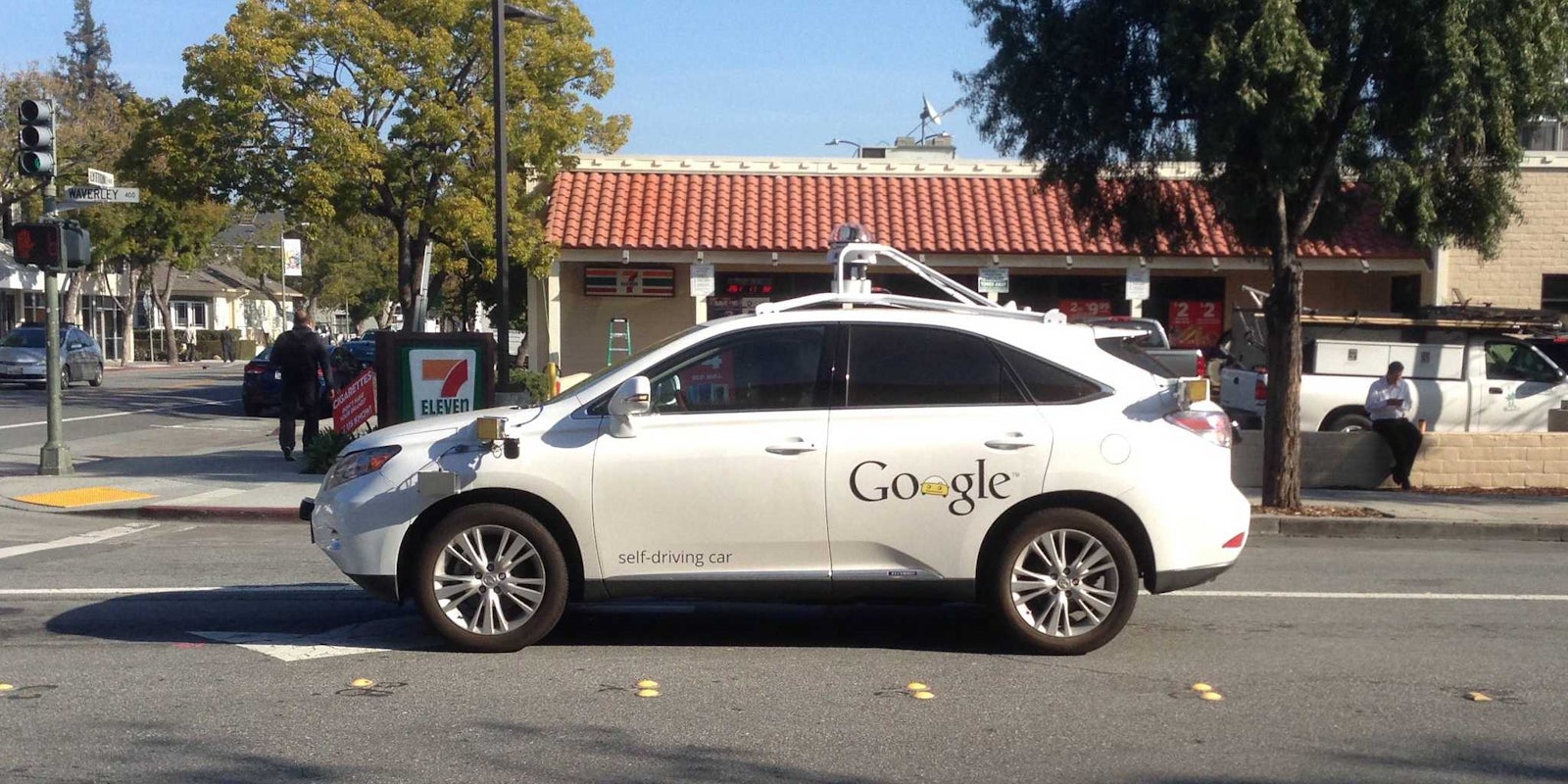In the not-so-distant future, smartphones and computers won’t be the only thing powered by Google operating systems—Ford cars will be, as well.
According to a report from Yahoo, the Detroit-based manufacturer and the Mountain View, California, search giant are set to take part in a joint venture to build self-driving vehicles. The partnership will utilize technology developed by Google with the intention of bringing autonomous vehicles to market for a ridesharing service.
The potential agreement is said to be non-exclusive, allowing Google to continue its negotiations with other car makers about integrating its software into their vehicles. The partnership would result in an entity that is legally separate from Ford to protect the car maker from liability concerns resulting from accidents.
A partnership between the two companies would appear to be mutually beneficial. Ford would get an instant boost in technological development, allowing it to piggyback on Google’s groundwork instead of developing its own software and algorithms the way other car makers have started to pursue, while Google gains a manufacturer. Both would be considerable financial undertakings if the companies were to pursue those options on their own.
Bryant Walker Smith, chair of the Emerging Technology Law Committee of the Transportation Research Board of the National Academies of Sciences, Engineering, and Medicine, told the Daily Dot that if the report is true, “it further illuminates how key companies are moving from research and development into actual commercialization of these technologies. That is exciting.”
Ford announced earlier this month that the company would begin testing its own autonomous vehicles in California. Getting the automated rides on the road marks a major step in the company’s 10-year autonomous vehicle development program, part of the Smart Mobility Plan that it unveiled at CES 2015.
The endeavor to develop self-driving features for consumer cars appears as though it will be a different undertaking than the one to build autonomous ridesharing vehicles.
“Traditional automakers have largely focused on advanced driver assistance systems in vehicles that are sold to individuals to drive anywhere they want. But truly driverless systems, including what Google has announced to date, will be different,” Smith explained. “At least initially, these vehicles are unlikely to be individually owned. And, critically, location matters: Some communities will get driverless taxis much faster than others. Transportation will shift from a product we buy to a service we use.”
Details of the pairing are sparse thus far. Yahoo reported that more information will be revealed at CES 2016 in January. Neither Google nor Ford confirmed the initial report.
“In order to reach our long-term goal of transforming mobility for millions of people we’re talking to many different companies about how to bring self-driving vehicles into the world safely, but we’re not going to comment on rumor or speculation about specific conversations,” a Google spokesperson told the Daily Dot.
Ford communications manager Alan Hall told the Daily Dot: “We have been and will continue working with many companies and discussing a variety of subjects related to our Ford Smart Mobility plan. We keep these discussions private for obvious competitive reasons, and we do not comment on speculation.”
H/T Yahoo | Photo via Ed and Eddie/Flickr (CC BY 2.0)


